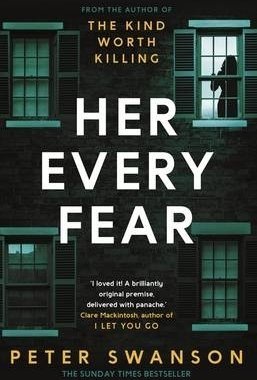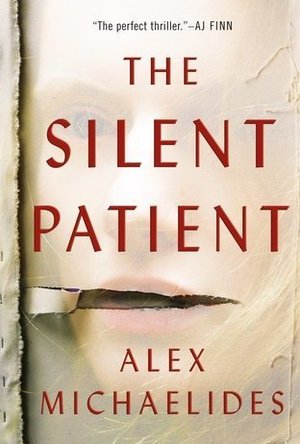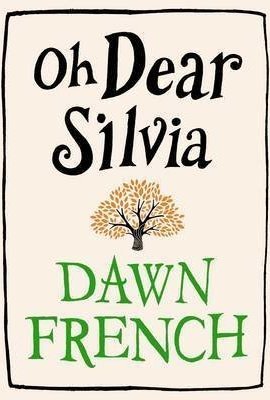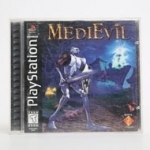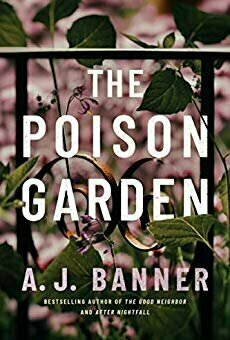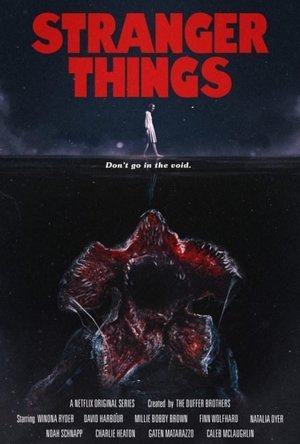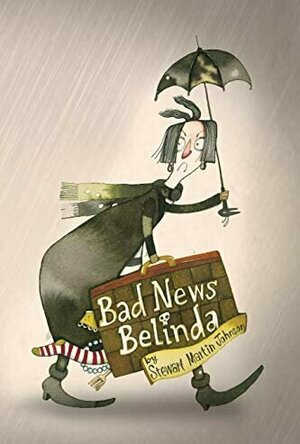Search
Search results
Kristy H (1252 KP) rated The Nearness of You in Books
Feb 13, 2018
Suzette and Hyland have a happy marriage and a busy life when Hyland surprises his wife with the news that he really wants a child. Married fifteen years, children had always been off the table, as Suzette did not want to pass on the genes of her mother, a woman who gave Suzette a horrifying and unstable childhood and eventually wound up in a mental institution. But Hyland proposes a new solution: what if they use a surrogate, with his sperm and a surrogate's egg? Suzette, a busy and successful heart surgeon, reluctantly agrees. Even though there are some red flags, the couple eventually chooses young Dorrie, a woman who wants to use the surrogate fees to go to college. Dorrie and Hyland bond, and Suzette realizes she must get on board with the idea. But soon Dorrie will make some decisions that will affect everyone in this new trio.
I am a bit conflicted about this novel. Ward wrote [book:The Same Sky|22716408], which is a beautiful novel and one everyone should read in this current political climate. It's hard not to compare others to that magical book, and this one did fall short. She does, however, have a way of weaving stories with her words, and while I wasn't nearly as attached to the characters in this novel, I still found myself reading the last half of the book somewhat compulsively.
The novel started out slow, but picked up about 1/4 through, with a twist in the plot. It's told from a shifting rotation of perspectives, including Suzette, Dorrie, and Hyland. There are some large shifts in time as the novel progresses, which did make it harder to attach to some of the characters. None of the plot twists are exactly surprise, as they are foreshadowed a bit in each character's description: this is more of a character-driven novel versus a shocking dramatic novel. Still, even though I tore through the last half of the novel, I just felt the book lacked something, and I felt a tad let down by a story and characters that weren't completely fully developed (the ending is a bit abrupt as well). I enjoyed the perspectives on motherhood that the novel offered, but felt there could be more. That's not to say the novel isn't worth reading; Ward is a wonderful writer, but I just felt a little perplexed and frustrated when this one ended. I had hoped for more.
I received a copy of this novel from the publisher and Netgalley (thank you!); it is available everywhere as of 02/21/2017.
I am a bit conflicted about this novel. Ward wrote [book:The Same Sky|22716408], which is a beautiful novel and one everyone should read in this current political climate. It's hard not to compare others to that magical book, and this one did fall short. She does, however, have a way of weaving stories with her words, and while I wasn't nearly as attached to the characters in this novel, I still found myself reading the last half of the book somewhat compulsively.
The novel started out slow, but picked up about 1/4 through, with a twist in the plot. It's told from a shifting rotation of perspectives, including Suzette, Dorrie, and Hyland. There are some large shifts in time as the novel progresses, which did make it harder to attach to some of the characters. None of the plot twists are exactly surprise, as they are foreshadowed a bit in each character's description: this is more of a character-driven novel versus a shocking dramatic novel. Still, even though I tore through the last half of the novel, I just felt the book lacked something, and I felt a tad let down by a story and characters that weren't completely fully developed (the ending is a bit abrupt as well). I enjoyed the perspectives on motherhood that the novel offered, but felt there could be more. That's not to say the novel isn't worth reading; Ward is a wonderful writer, but I just felt a little perplexed and frustrated when this one ended. I had hoped for more.
I received a copy of this novel from the publisher and Netgalley (thank you!); it is available everywhere as of 02/21/2017.
Kristy H (1252 KP) rated Her Every Fear in Books
Feb 13, 2018
Kate Priddy suffers from anxiety. Neurotic since childhood, her recent fears have good reason: in college, Kate was attacked in a horrific incident by her boyfriend. It's taken Kate years to recover from that day. So when her parents tell her that her distant cousin, Corbin Dell, is looking to move to London and wants someone to switch apartments with for six months, Kate jumps at the chance. Six months in Corbin's spacious apartment will give her a chance to start her life over on her own. But shortly after arriving in Boston, Kate receives some unsettling news: the woman who lived down the hall, Audrey, is missing. She soon discovers that Audrey was murdered. Even worse, she realizes that Corbin is a suspect in Audrey's death. As Kate tries to adjust to life in Boston, she meets another fellow apartment-dweller, Alan Cherney. Alan claims he didn't know Audrey, but he seems to know a lot about her. Kate suddenly regrets her temporary move to the States, and soon she finds herself wondering if she's even safe there.
This novel was the first Swanson I've ever read. It starts off from Kate's perspective, but switches over after a couple of chapters to Alan, and we hear from Corbin and others throughout the story as well. While doing this, the story sometimes double backs to get the same perspective from a different character. While it's effective in showing different sides to one plot element, it seems to drag the story on, and make things repeat unnecessarily. I enjoyed the character of Kate, though couldn't always find myself attached to her. She was probably my favorite of the group, though. For me, I found some bits of the plot a little over the top (the list of things that have happened to Kate seems extreme, for example).
I guessed a good part of the mystery plot early on, but was still confounded by other pieces, so I did find it interesting, and it certainly had creepy pieces. Still, I wasn't incredibly invested in this one -- either the plot or the characters. Things just seemed a little "too much" at times, and then by the time we did get to the dramatic ending, it tied up really quickly, which was a little anticlimactic. Overall, this was a good thriller, but not great.
I received a copy of this novel from the publisher and Edelweiss (thank you!); it is available as of 1/10/2017.
This novel was the first Swanson I've ever read. It starts off from Kate's perspective, but switches over after a couple of chapters to Alan, and we hear from Corbin and others throughout the story as well. While doing this, the story sometimes double backs to get the same perspective from a different character. While it's effective in showing different sides to one plot element, it seems to drag the story on, and make things repeat unnecessarily. I enjoyed the character of Kate, though couldn't always find myself attached to her. She was probably my favorite of the group, though. For me, I found some bits of the plot a little over the top (the list of things that have happened to Kate seems extreme, for example).
I guessed a good part of the mystery plot early on, but was still confounded by other pieces, so I did find it interesting, and it certainly had creepy pieces. Still, I wasn't incredibly invested in this one -- either the plot or the characters. Things just seemed a little "too much" at times, and then by the time we did get to the dramatic ending, it tied up really quickly, which was a little anticlimactic. Overall, this was a good thriller, but not great.
I received a copy of this novel from the publisher and Edelweiss (thank you!); it is available as of 1/10/2017.
Ivana A. | Diary of Difference (1171 KP) rated The Silent Patient in Books
Dec 7, 2018
Full review on my blog: www.diaryofdifference.com
A book that speaks about feelings, and lack of them. Love and emotions. Art and passion. Psychology and memories. And how our childhood might define who we will become.
I have never felt such urgency to read another chapter as I have felt it with The Silent Patient. Such impatience, such excitement. It’s a feeling I wish I can get with all the books in my life.
ALICIA
Alicia Berenson writes a diary as a release, an outlet – and to prove to her beloved husband that everything is fine. She can’t bear the thought of worrying Gabriel, or causing him pain.
Until, late one evening, Alicia shoots Gabriel five times and then never speaks another word.
THEO
Forensic psychotherapist Theo Faber is convinced he can successfully treat Alicia, where all others have failed. Obsessed with investigating her crime, his discoveries suggest Alicia’s silence goes far deeper than he first thought.
And if she speaks, would he want to hear the truth?
I love these types of books. Besides the mystery and thriller, the psychological part was an incredibly well-put together piece of art.
The beginning of the story is nice and slow, but with a temptation in it, that makes you flip the pages so fast. A great world and character building, and great character hopping from Theo to Alicia, from chapter to chapter.
Even though we don’t get to have Alicia talking in the book, she says so much. All her movements, all her reactions, or lack of reaction is so well written. Her lack of speaking doesn’t stop her from moving the story forward, and being the main protagonist here.
On the other hand, we have Theo, who we see and get to know more and more with each chapter. A complicated character, with a cute oddness to himself, a characteristic I find with many psychotherapists. He is the person we see at the front of the screen, presenting himself in the spotlight, together with Alicia.
A well-written plot, with an amazing cliff-hanger and a wonderful plot-twist in the end. I didn’t expect it, and I am awfully satisfied of how the authors decides to conclude the book.
I enjoyed this book so much, and I recommend it to all the psychological thriller book readers here. Don’t miss this one, and get your copy today. It’s so worth it!
Thank you to NetGalley and Orion Publishing Group, for providing me with an e-copy, in exchange for an honest review. All opinions are my own and completely unbiased.
A book that speaks about feelings, and lack of them. Love and emotions. Art and passion. Psychology and memories. And how our childhood might define who we will become.
I have never felt such urgency to read another chapter as I have felt it with The Silent Patient. Such impatience, such excitement. It’s a feeling I wish I can get with all the books in my life.
ALICIA
Alicia Berenson writes a diary as a release, an outlet – and to prove to her beloved husband that everything is fine. She can’t bear the thought of worrying Gabriel, or causing him pain.
Until, late one evening, Alicia shoots Gabriel five times and then never speaks another word.
THEO
Forensic psychotherapist Theo Faber is convinced he can successfully treat Alicia, where all others have failed. Obsessed with investigating her crime, his discoveries suggest Alicia’s silence goes far deeper than he first thought.
And if she speaks, would he want to hear the truth?
I love these types of books. Besides the mystery and thriller, the psychological part was an incredibly well-put together piece of art.
The beginning of the story is nice and slow, but with a temptation in it, that makes you flip the pages so fast. A great world and character building, and great character hopping from Theo to Alicia, from chapter to chapter.
Even though we don’t get to have Alicia talking in the book, she says so much. All her movements, all her reactions, or lack of reaction is so well written. Her lack of speaking doesn’t stop her from moving the story forward, and being the main protagonist here.
On the other hand, we have Theo, who we see and get to know more and more with each chapter. A complicated character, with a cute oddness to himself, a characteristic I find with many psychotherapists. He is the person we see at the front of the screen, presenting himself in the spotlight, together with Alicia.
A well-written plot, with an amazing cliff-hanger and a wonderful plot-twist in the end. I didn’t expect it, and I am awfully satisfied of how the authors decides to conclude the book.
I enjoyed this book so much, and I recommend it to all the psychological thriller book readers here. Don’t miss this one, and get your copy today. It’s so worth it!
Thank you to NetGalley and Orion Publishing Group, for providing me with an e-copy, in exchange for an honest review. All opinions are my own and completely unbiased.
BookwormMama14 (18 KP) rated Born of Persuasion (Price of Privilege, #1) in Books
Jan 2, 2019
Our leading lady, Julia Elliston, is the daughter of the famed Atheist William Elliston. She is young and naïve, her mother tried to protect her and shield her from the world outside. She has much to learn about the world and is in a delicate emotional state. Her entire life has begun to crumble, starting with the death of her mother. She soon learns that everything she thought she knew is a lie. How did her mother die exactly? And who is this mysterious guardian who wishes to remain anonymous? Her childhood sweetheart has betrayed her, yet is there hope for reconciliation? As we follow Julia’s journey of discovery we encounter a few other key players. Edward and Henry Auburn, brothers who fell in love with Julia and her best friend Elizabeth Windham as children. They made plans of their future together and were secretly betrothed. But now, all their hopes and dreams are threatened. Elizabeth’s mother, Mrs. Windham has taken it upon herself to find a husband for “poor Julia”. Lady Foxworth is intent upon playing matchmaker as well. Little does Julia know the vast change in life that could take place if she concedes to marry Mr. Macy. A man with extraordinary wealth that has promised to care for and protect Julia. But can he be trusted? When laws cannot protect Julia, will her life come to ruin? And will she take a step of faith towards the only One who remains constant in an ever changing world?
To be completely honest, I didn’t know what to think of this book most of the time I was reading it. Now that I have finished I will say that while I wasn’t 100% impressed with particulars of the content, it was a very well written book. I love the descriptive way Jessica Dotta drew me into the story. So much so, that I could imagine standing in the room with Julia. The language and style is one of my favorites for reading. The entire book is narrated by Julia who is looking back on her life much later, after the events have taken place. She hints at other mysteries in the story, but doesn’t give away too much. I was not impressed with the scenes between Mr. Macy and Julia where he was supposedly “courting” her. Although Julia remains a maiden by the end of the book, she allowed Macy’s advancements premature. It made me feel uncomfortable. Other than that, I really did enjoy Born of Persuasion. I am starting the second book Mark of Distinction, today.
To be completely honest, I didn’t know what to think of this book most of the time I was reading it. Now that I have finished I will say that while I wasn’t 100% impressed with particulars of the content, it was a very well written book. I love the descriptive way Jessica Dotta drew me into the story. So much so, that I could imagine standing in the room with Julia. The language and style is one of my favorites for reading. The entire book is narrated by Julia who is looking back on her life much later, after the events have taken place. She hints at other mysteries in the story, but doesn’t give away too much. I was not impressed with the scenes between Mr. Macy and Julia where he was supposedly “courting” her. Although Julia remains a maiden by the end of the book, she allowed Macy’s advancements premature. It made me feel uncomfortable. Other than that, I really did enjoy Born of Persuasion. I am starting the second book Mark of Distinction, today.
Hazel (1853 KP) rated Oh Dear Silvia in Books
Dec 14, 2018
<i>Oh Dear Silvia</i> is a contemporary, somewhat humorous, novel by British comedian, Dawn French. Set in England it focuses on a sixty-year-old woman, Silvia Shute, who has fallen from a balcony, sustaining a serious head injury that has left her in a coma.
Knowing this you cannot help wondering how you do write a book where the main character is unconscious and how would this affect the narrative? This is how. Although Silvia is indeed the main character, the tale is actually told through observing family members and friends when they visit her in hospital. The entire book plays out in Silvia’s hospital room, Suite 5, but each character brings something else to story through their thoughts, feelings and actions.
Ed, Silvia’s ex husband, provides details of what has happened since their divorce. Jo, her older sister, reminisces about their childhood whist trying and failing to use a number of New Age ideas to wake Silvia up. There is Cat, her best friend, through who we discover what actually happened to Silvia, whilst, Tia, her cleaner is bringing in her favourite foods and updating her on the various goings on in the celebrity world. Cassie, her daughter however, portrays Silvia in a different light that makes us question what kind of person Silvia really was. And finally there is Winnie, a nurse at the hospital. Winnie’s accounts provide the reader with an extra storyline that is nothing to do with Silvia and her accident.
The story being told in this way gives the reader a chance to learn about who Silvia was which causes us to think different things about her which we would not have had the opportunity to feel had Silvia been able to tell the story herself. Firstly we feel worry for her, but then we begin to hate her particularly with the help of Cassie as well as Ed, who admits that had Silvia been conscious he would not have been visiting. Finally we get to a stage of understanding. Understanding who Silvia was, understanding why she did what she did, understanding what has happened to her.
The book takes on many themes: drama, mystery… and humour. Well, it is meant to be humour. I can understand the funny parts but personally it was not my type of humour. Too much swearing in my opinion. But then if you enjoy that type of thing, <i>Oh Dear Silvia</i> has the potential to be a really funny book.
Knowing this you cannot help wondering how you do write a book where the main character is unconscious and how would this affect the narrative? This is how. Although Silvia is indeed the main character, the tale is actually told through observing family members and friends when they visit her in hospital. The entire book plays out in Silvia’s hospital room, Suite 5, but each character brings something else to story through their thoughts, feelings and actions.
Ed, Silvia’s ex husband, provides details of what has happened since their divorce. Jo, her older sister, reminisces about their childhood whist trying and failing to use a number of New Age ideas to wake Silvia up. There is Cat, her best friend, through who we discover what actually happened to Silvia, whilst, Tia, her cleaner is bringing in her favourite foods and updating her on the various goings on in the celebrity world. Cassie, her daughter however, portrays Silvia in a different light that makes us question what kind of person Silvia really was. And finally there is Winnie, a nurse at the hospital. Winnie’s accounts provide the reader with an extra storyline that is nothing to do with Silvia and her accident.
The story being told in this way gives the reader a chance to learn about who Silvia was which causes us to think different things about her which we would not have had the opportunity to feel had Silvia been able to tell the story herself. Firstly we feel worry for her, but then we begin to hate her particularly with the help of Cassie as well as Ed, who admits that had Silvia been conscious he would not have been visiting. Finally we get to a stage of understanding. Understanding who Silvia was, understanding why she did what she did, understanding what has happened to her.
The book takes on many themes: drama, mystery… and humour. Well, it is meant to be humour. I can understand the funny parts but personally it was not my type of humour. Too much swearing in my opinion. But then if you enjoy that type of thing, <i>Oh Dear Silvia</i> has the potential to be a really funny book.
Hazel (1853 KP) rated Capturing Jasmina (India's Street Kids #1) in Books
Dec 17, 2018
<i>This eBook was provided by the publisher via NetGalley in exchange for an honest review</i>
Kimberly Rae draws attention to the ongoing trafficking of children in India in her young adult novel <i>Capturing Jasmina</i>. Jasmina was only ten when her father sold both her and her brother Samir to a man promising safety and good education. In reality the siblings end up in a sweatshop slaving over clothes to be sold in America. After three years they manage to escape only to be trafficked a second time. Eventually Jasmina and Samir are separated and Jasmina becomes a street kid.
Whilst living on the streets Jasmina encounters a Christian missionary, Asha, rescuing women from brothels by either offering them a safe place to live or at the very least spiritually, by teaching them about God and Jesus. Intrigued Jasmina follows Asha who then offers to help her too. After having her childhood robbed from her, it seems like Jasmina, with the help of those who trust in God, will get back on her feet again.
Despite being a short novel, Rae paints a contrasting image to what the western world is used to. Jasmina finds the concept of a simple toilet baffling. It is not until you hear or see what is happening to innocent people in other parts of the world that you realize there are so many things in life you take for granted.
<i>Capturing Jasmina</i> emphasizes how difficult it is to escape once trafficked. In these situations people belong to everyone but themselves. They have no freedom and running away can cause more problems than it solves. The novel also shows what Christians can do to help. Although no one can completely solve the problems, the tiniest piece of aid they can provide is a step in the right direction.
It was slightly disappointing that we do not find out what happened to Samir once he was separated from his sister. Jasmina’s first person narrative makes it clear that what she wants most is to be reunited with her family. In a way, although there is a positive ending, not yet finding her brother makes it clear that there cannot always be happy endings. It is not possible to save everyone.
Written from a young teenagers point of view makes this book suitable for ages twelve and older. Christians will appreciate the biblical references however there is not too much religion for non-believers or those of other religions to get offended by.
Kimberly Rae draws attention to the ongoing trafficking of children in India in her young adult novel <i>Capturing Jasmina</i>. Jasmina was only ten when her father sold both her and her brother Samir to a man promising safety and good education. In reality the siblings end up in a sweatshop slaving over clothes to be sold in America. After three years they manage to escape only to be trafficked a second time. Eventually Jasmina and Samir are separated and Jasmina becomes a street kid.
Whilst living on the streets Jasmina encounters a Christian missionary, Asha, rescuing women from brothels by either offering them a safe place to live or at the very least spiritually, by teaching them about God and Jesus. Intrigued Jasmina follows Asha who then offers to help her too. After having her childhood robbed from her, it seems like Jasmina, with the help of those who trust in God, will get back on her feet again.
Despite being a short novel, Rae paints a contrasting image to what the western world is used to. Jasmina finds the concept of a simple toilet baffling. It is not until you hear or see what is happening to innocent people in other parts of the world that you realize there are so many things in life you take for granted.
<i>Capturing Jasmina</i> emphasizes how difficult it is to escape once trafficked. In these situations people belong to everyone but themselves. They have no freedom and running away can cause more problems than it solves. The novel also shows what Christians can do to help. Although no one can completely solve the problems, the tiniest piece of aid they can provide is a step in the right direction.
It was slightly disappointing that we do not find out what happened to Samir once he was separated from his sister. Jasmina’s first person narrative makes it clear that what she wants most is to be reunited with her family. In a way, although there is a positive ending, not yet finding her brother makes it clear that there cannot always be happy endings. It is not possible to save everyone.
Written from a young teenagers point of view makes this book suitable for ages twelve and older. Christians will appreciate the biblical references however there is not too much religion for non-believers or those of other religions to get offended by.
Matthew Krueger (10051 KP) rated MediEvil in Video Games
Oct 29, 2019 (Updated Oct 29, 2019)
Classic
I remember playing this game, on the ps1. It was on a demo disk that had a collection of games and this was one of them. I just remember it being so cool and intresting. I havent played it since childhood, i want to play it again. So lets talk about it..
The game is set in the medieval Kingdom of Gallowmere and centres around the charlatan protagonist, Sir Daniel Fortesque, as he makes an attempt to stop antagonist Zarok's invasion of the kingdom whilst simultaneously redeeming himself.
Development began in 1995 at Millenium Interactive in Cambridge under the working title of Dead Man Dan. The visuals are heavily influenced by Tim Burton's The Nightmare Before Christmas. Originally conceived as an arcade-style shooter for platforms such as Windows and the Sega Saturn, Sony's purchase of SCE Cambridge Studio evolved the game into a PlayStation title.
The game takes place across a variety of levels, many of which require certain objectives to be performed to progress. Sir Daniel Fortesque can use a variety of weapons, consisting of close range weapons such as swords and clubs to long range weapons such as crossbows. When not possessing any items, Dan is able to rip his arm off and use it for both melee and ranged attacks. Dan can equip a shield alongside weapons for defence, but shields have a limited amount of strength and are therefore best used sparingly. Throughout the game, Dan can visit gargoyle heads of two varieties: green ones offer Dan information while blue ones allow Dan to buy services or ammunition by using the treasures he finds.
Lets talk about the plot: In the year 1286, an evil sorcerer named Zarok plotted to take over the kingdom of Gallowmere with his undead army. It is told in legend that the champion, Sir Daniel Fortesque, led the King of Gallowmere's army to victory and managed to kill Zarok before he succumbed to his mortal wounds. In reality, however, Dan was struck down by the first arrow fired in the battle, with the king choosing to cover it up and declare Dan the "Hero of Gallowmere.
It is a classic ps1 underrated game, that people should play, if you havent. Their have recently released it on the ps4. And on that remake you can play the original 1998 game can be unlocked in the remake by completing special objectives. Which is cool.
Lastly shout of to @Kevin Phillipson for getting the hints/clues for this review right.
A must play game.
The game is set in the medieval Kingdom of Gallowmere and centres around the charlatan protagonist, Sir Daniel Fortesque, as he makes an attempt to stop antagonist Zarok's invasion of the kingdom whilst simultaneously redeeming himself.
Development began in 1995 at Millenium Interactive in Cambridge under the working title of Dead Man Dan. The visuals are heavily influenced by Tim Burton's The Nightmare Before Christmas. Originally conceived as an arcade-style shooter for platforms such as Windows and the Sega Saturn, Sony's purchase of SCE Cambridge Studio evolved the game into a PlayStation title.
The game takes place across a variety of levels, many of which require certain objectives to be performed to progress. Sir Daniel Fortesque can use a variety of weapons, consisting of close range weapons such as swords and clubs to long range weapons such as crossbows. When not possessing any items, Dan is able to rip his arm off and use it for both melee and ranged attacks. Dan can equip a shield alongside weapons for defence, but shields have a limited amount of strength and are therefore best used sparingly. Throughout the game, Dan can visit gargoyle heads of two varieties: green ones offer Dan information while blue ones allow Dan to buy services or ammunition by using the treasures he finds.
Lets talk about the plot: In the year 1286, an evil sorcerer named Zarok plotted to take over the kingdom of Gallowmere with his undead army. It is told in legend that the champion, Sir Daniel Fortesque, led the King of Gallowmere's army to victory and managed to kill Zarok before he succumbed to his mortal wounds. In reality, however, Dan was struck down by the first arrow fired in the battle, with the king choosing to cover it up and declare Dan the "Hero of Gallowmere.
It is a classic ps1 underrated game, that people should play, if you havent. Their have recently released it on the ps4. And on that remake you can play the original 1998 game can be unlocked in the remake by completing special objectives. Which is cool.
Lastly shout of to @Kevin Phillipson for getting the hints/clues for this review right.
A must play game.
Kristy H (1252 KP) rated The Poison Garden in Books
Oct 24, 2019
Elise is heading back to Chinook Island, preparing to celebrate her first wedding anniversary with her husband, Dr. Kieran Lund. They seem to have an ideal, loving marriage, living in Elise's childhood home. Once a pharmacist, she now runs her late mother's herbal boutique. But upon her arrival to the island, Elise makes a shocking discovery, causing her to doubt all she thought about Kieran and their marriage. Soon she finds herself doubting everyone--even her own memories.
"On the ferry ride home, I was not yet planning to kill anyone. I was still full of hope, eager to land on Chinook Island..."
This is one of those thrillers where you have to go in willing to suspend a little disbelief. It's a bit crazy and a little preposterous, sure. But I have to admit, this was a fun one. I was a little hesitant for a while, pretty sure I had it all figured out and it wasn't going to surprise me. But, I'll gladly admit, I was wrong! This turned out to be a very enthralling read, and I consumed the last half breathlessly, quite intrigued to find out what happened with Elise and Keiran.
I was doubtful about this one in the beginning because it relies on the somewhat overused unreliable narrator trope: can we trust Elise? It seems she's been a sleepwalker in the past, and now, stressed once again, has turned back to her old habits. (At least she wasn't an alcoholic.) I didn't really love Elise, but I admire a book that can keep me engaged even when I'm not 100% behind our protagonist.
"Was I going mad? Padding around in the dark, my subconscious alter ego seizing control?
In fact none of our cast of characters is a real winner: Elise's new husband; her ex, who seems a bit stalkery; her flirtatious neighbor... There is a lot of focus on herbs and medicinal plants, which Elise's mom used in her store. You're never really sure where or why some of the details are thrown in.
But... where this book succeeds and what makes it worth reading is its unpredictability. All of those details are, in fact, quite important. By the end, when it all came together, I was quite surprised (a little mad at myself for not putting more together sooner) and impressed. This one kept me guessing and outwitted me. It was a very easy read and a fun, different thriller. 3.75 stars--rounded to 4 here.
"On the ferry ride home, I was not yet planning to kill anyone. I was still full of hope, eager to land on Chinook Island..."
This is one of those thrillers where you have to go in willing to suspend a little disbelief. It's a bit crazy and a little preposterous, sure. But I have to admit, this was a fun one. I was a little hesitant for a while, pretty sure I had it all figured out and it wasn't going to surprise me. But, I'll gladly admit, I was wrong! This turned out to be a very enthralling read, and I consumed the last half breathlessly, quite intrigued to find out what happened with Elise and Keiran.
I was doubtful about this one in the beginning because it relies on the somewhat overused unreliable narrator trope: can we trust Elise? It seems she's been a sleepwalker in the past, and now, stressed once again, has turned back to her old habits. (At least she wasn't an alcoholic.) I didn't really love Elise, but I admire a book that can keep me engaged even when I'm not 100% behind our protagonist.
"Was I going mad? Padding around in the dark, my subconscious alter ego seizing control?
In fact none of our cast of characters is a real winner: Elise's new husband; her ex, who seems a bit stalkery; her flirtatious neighbor... There is a lot of focus on herbs and medicinal plants, which Elise's mom used in her store. You're never really sure where or why some of the details are thrown in.
But... where this book succeeds and what makes it worth reading is its unpredictability. All of those details are, in fact, quite important. By the end, when it all came together, I was quite surprised (a little mad at myself for not putting more together sooner) and impressed. This one kept me guessing and outwitted me. It was a very easy read and a fun, different thriller. 3.75 stars--rounded to 4 here.
Sarah (7800 KP) rated Stranger Things - Season 3 in TV
Aug 10, 2019
Almost perfect
I toyed between giving this an 8 or 9, and in the end I’ve decided to be generous although I’m still not entirely sure. I was worried I’d hate this series as I’ve heard some say it’s not great, but I actually enjoyed this much more than series 2 and possibly even slightly more than the first series.
My first negative is the story. The whole Russian thing is a little bit ridiculous and far fetched (even for this show), which is a shame as the rest of the plot is intriguing and really rather good. The horror and gore aspects of this are brilliant. I thought this was by far the scariest of the seasons as the Mind Flayer is truly terrifying and beyond creepy. The mixture of retro references, humour and horror works so well and makes it really enjoyable to watch. All of the characters shine, even the new ones like Robin or new-ish ones like Erica, are well developed and fit in well with the rest of the originals. I of course still have a soft spot for Hopper who is just marvellous yet again in this, often rather sinister and darkly hilarious. And the pairing yet again of Steve and Dustin is such fun. The childhood romance thing is a little bit cheesy and sickly sweet, but fortunately bearable for the most part as it takes a backseat to the rest of the action.
My biggest issue with this show, other than the over the top and strangely stupid Russians, and the reason why I was debating giving it a lower score, is the ending. Or rather the end credits scene that ruined everything. The actual ending to this show is one of the most emotional things I’ve seen in a long time in a tv show, and I’m not ashamed to admit I was virtually in tears at the ending. It was such a heartwarming and fitting way to end the show, and really quite lovely in a sad way. It was a great way to round off a show and finish the entire series on a massive high without the need to make another season. However, the end credits scene is pure ‘sequel baiting’ and whilst Netflix haven’t officially confirmed, it already sounds like season 4 is in the making. And I can’t even begin to describe how angry I am at this, why do they insist on ruining a perfectly good ending?! I really wish they hadn’t done this. But this aside, I enjoyed this series quite a lot.
My first negative is the story. The whole Russian thing is a little bit ridiculous and far fetched (even for this show), which is a shame as the rest of the plot is intriguing and really rather good. The horror and gore aspects of this are brilliant. I thought this was by far the scariest of the seasons as the Mind Flayer is truly terrifying and beyond creepy. The mixture of retro references, humour and horror works so well and makes it really enjoyable to watch. All of the characters shine, even the new ones like Robin or new-ish ones like Erica, are well developed and fit in well with the rest of the originals. I of course still have a soft spot for Hopper who is just marvellous yet again in this, often rather sinister and darkly hilarious. And the pairing yet again of Steve and Dustin is such fun. The childhood romance thing is a little bit cheesy and sickly sweet, but fortunately bearable for the most part as it takes a backseat to the rest of the action.
My biggest issue with this show, other than the over the top and strangely stupid Russians, and the reason why I was debating giving it a lower score, is the ending. Or rather the end credits scene that ruined everything. The actual ending to this show is one of the most emotional things I’ve seen in a long time in a tv show, and I’m not ashamed to admit I was virtually in tears at the ending. It was such a heartwarming and fitting way to end the show, and really quite lovely in a sad way. It was a great way to round off a show and finish the entire series on a massive high without the need to make another season. However, the end credits scene is pure ‘sequel baiting’ and whilst Netflix haven’t officially confirmed, it already sounds like season 4 is in the making. And I can’t even begin to describe how angry I am at this, why do they insist on ruining a perfectly good ending?! I really wish they hadn’t done this. But this aside, I enjoyed this series quite a lot.
Night Reader Reviews (683 KP) rated Bad News Belinda in Books
Jan 9, 2020
Bad News Belinda by Stewart Martin Johnson is an amazingly cute little childrens book of only about thirty pages or so. Each page only has an average of about one sentence which makes it a very easy read. For some reason, it brought back memories of Amelia Bedelia from my childhood, but that may just be because of the name.
Aunt Belinda coming to stay for a visit is one of those visits that we all come to dread. In some way, most people can probably relate to having a relative that they are less than enthusiastic to see but hopefully they are not as bad as Belinda. When Belinda is around the children have to hide their candy and clean while Belinda either sits around or makes a mess of things.
Belinda doesn't do fun things with the children like the other aunts do, instead, she makes things miserable for them. The other Aunts help the children plan to get rid of Belinda, but Belinda overhears them. After everyone tells Belinda what they really think of her she leaves on her own and the children have a party with the good aunts.
What I liked best was how the artwork and the story worked very well together. For childrens books, I feel it is very important that the artwork and the story work together. This book is a wonderful example of that. When Belinda is around the coloring is darker, messy, and has a negative feeling, but it is bright, happy, and cheerful when she is gone. If I had to choose something that I didnt like it would be how everyone told Belinda they did not like her. However, seeing as how Belinda being a problem was kind of the whole point of the book it's not really a negative.
The target readers for this book are any children who like to be read to and young beginning readers. As an adult I also found this book to be fun and enjoyed reading it to my children. That being said I rate this book to be a perfect 4 out of 4. This is because everything about this book is great. The short sentences and overall length do not intimidate young readers. The artwork is spot on with the tones of the book. It has some funny and silly moments such as Belinda eating a goldfish and some very nice rhymes.
https://nightreaderreviews.blogspot.com/
https://www.austinmacauley.com/book/bad-news-belinda
Aunt Belinda coming to stay for a visit is one of those visits that we all come to dread. In some way, most people can probably relate to having a relative that they are less than enthusiastic to see but hopefully they are not as bad as Belinda. When Belinda is around the children have to hide their candy and clean while Belinda either sits around or makes a mess of things.
Belinda doesn't do fun things with the children like the other aunts do, instead, she makes things miserable for them. The other Aunts help the children plan to get rid of Belinda, but Belinda overhears them. After everyone tells Belinda what they really think of her she leaves on her own and the children have a party with the good aunts.
What I liked best was how the artwork and the story worked very well together. For childrens books, I feel it is very important that the artwork and the story work together. This book is a wonderful example of that. When Belinda is around the coloring is darker, messy, and has a negative feeling, but it is bright, happy, and cheerful when she is gone. If I had to choose something that I didnt like it would be how everyone told Belinda they did not like her. However, seeing as how Belinda being a problem was kind of the whole point of the book it's not really a negative.
The target readers for this book are any children who like to be read to and young beginning readers. As an adult I also found this book to be fun and enjoyed reading it to my children. That being said I rate this book to be a perfect 4 out of 4. This is because everything about this book is great. The short sentences and overall length do not intimidate young readers. The artwork is spot on with the tones of the book. It has some funny and silly moments such as Belinda eating a goldfish and some very nice rhymes.
https://nightreaderreviews.blogspot.com/
https://www.austinmacauley.com/book/bad-news-belinda

